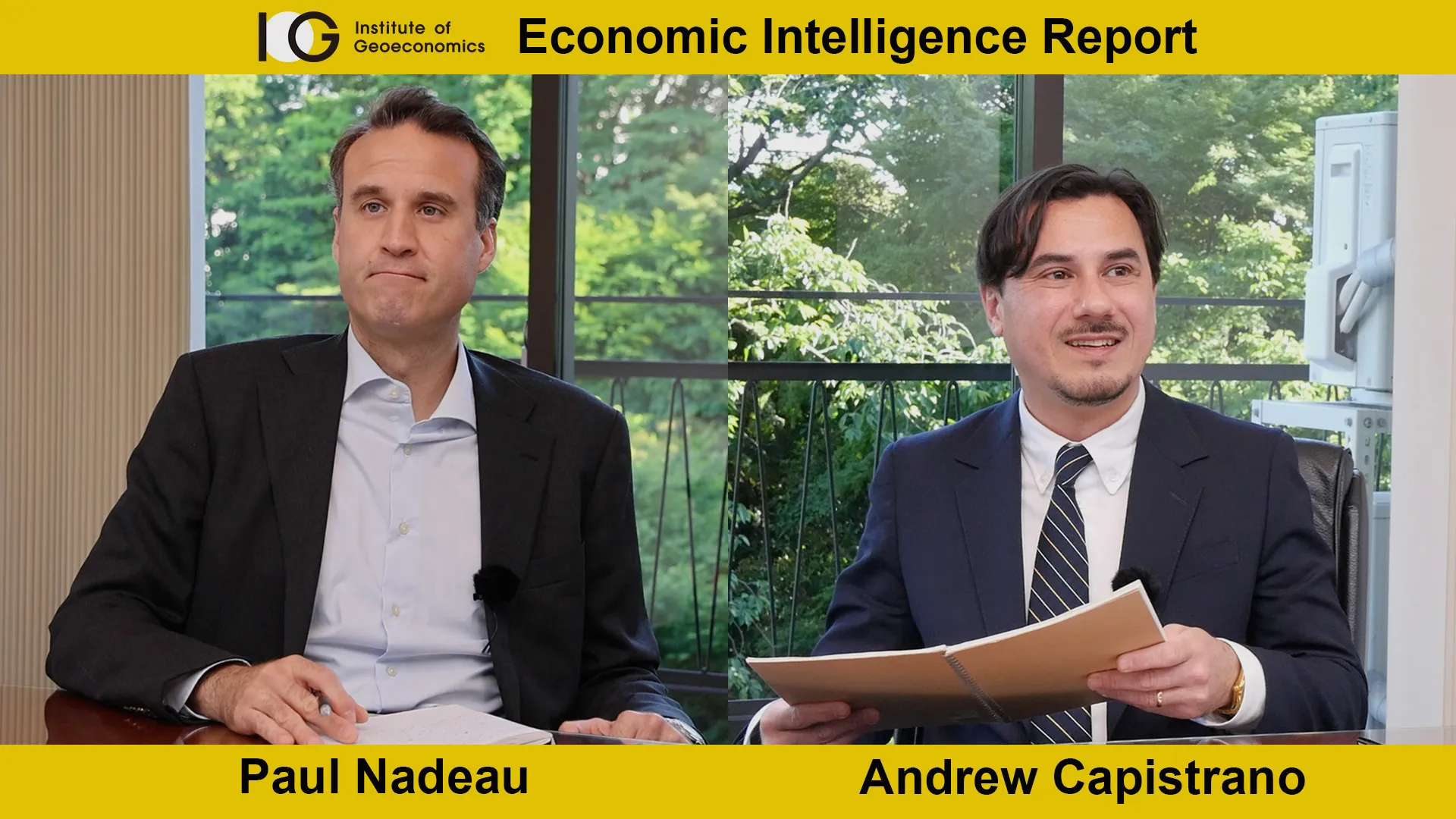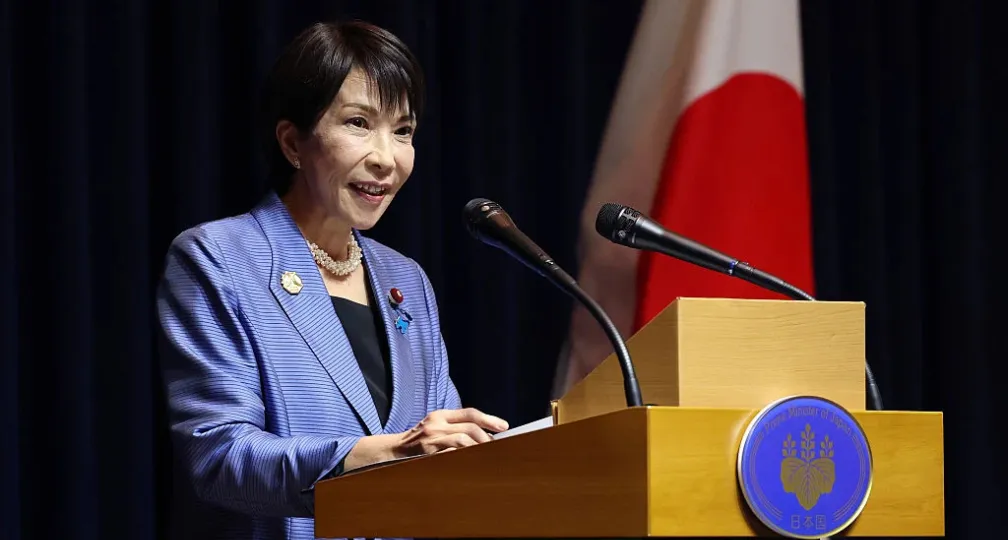IOG Economic Intelligence Report (Vol. 2 No. 19)

The latest regulatory developments on economic security & geoeconomics
New Rules: Reuters reported on October 17 that the U.S. Commerce Department will announce new rules this month to expand the scope of export controls on advanced semiconductors and semiconductor manufacturing equipment. The new rules are designed to expand the scope of the rules announced in October 2022 and cover advanced chips designed specifically for the Chinese market through specifications just slightly less sophisticated than those that were restricted. Chips intended for the commercial market, like those used in laptops and other consumer products, will be exempted but companies will need to inform the Commerce Department of these sales and ensure that they will not be used for national security applications. The expanded rules will also prevent Chinese companies from accessing U.S.-made advanced chips through their overseas operations and will not include cloud computing services. According to Reuters, the Biden administration informed Beijing of the new rules earlier this month.
Tit-for-Tat: On October 20, China announced that it would require export permits on certain graphite products starting December 1. China’s Ministry of Commerce said that the restrictions are “conducive to ensuring the security and stability of the global supply chain and industrial chain, and conducive to better safeguarding national security and interests”. The curbs are similar to those imposed on exports of gallium and germanium that were imposed on August 1. China is the world’s largest graphite producer and refines 90 percent of global graphite into material used in almost all electric vehicle (EV) batteries.
Iran Funds Withheld: The United States and Qatar agreed to deny Iran access to its $6 billion held in reserve in a Qatar bank. The money had originally been part of Iran’s oil revenues held in a Korean bank until Donald Trump froze Iran’s bank assets and banned its oil exports in 2019. The money was then moved to a Qatari bank to become available to Iran for humanitarian aid as part of a hostage exchange deal with the United States. However, the United States and Qatar froze access to the funds once again following the Hamas attacks against Israel on October 7, given Iran’s extensive financial and political support for Hamas.
Digital Service Tax Concern: Canada’s planned digital service tax is drawing concern from the U.S. Senate. While most member economies of the Organization for Economic Cooperation and Development (OECD) have committed to a one-year moratorium on such DSTs, the Canadian government plans to impose a 3 percent tax beginning January 1, 2024, impacting U.S. companies like Amazon, Meta, and Walmart. Senator Ron Wyden (D-OR), chairman of the Senate Committee on Finance, and Senator Mike Crapo (R-ID), ranking member of the Finance Committee, sent a letter to U.S. Trade Representative Katherine Tai on October 10 asking her agency to consider retaliatory options if Canada’s DST moves ahead.
Progress on AI Rules: G7 officials agreed to a draft plan to oversee advanced artificial intelligence (AI) technologies. The plan, which comprises 11 goals, is part of the Hiroshima Process which aims to create a set of principles to guide all organizations using and creating AI tools. Japan’s Prime Minister Kishida Fumio is expected formulate a list of guidelines and a code of conduct in a video conference with G7 leaders later this fall.
Digital Trade in Vietnam: The U.S. Agency for International Development (USAID) and Vietnam’s Ministry of Industry and Trade announced plans to establish the Vietnam Digital Trade program. The three-year project that will see USAID support the implementation of frameworks to facilitate digital trade between the United States and Vietnam.
Analysis: Is the United States a Threat to Economic Security?
When Biden administration officials speak publicly about their international economic strategy, and more particularly their use of export controls, they’re always careful to emphasize that it’s not a unilateral initiative. They’ll slow their pace of delivery, emphasizing the words “not” and “unilateral”, and enunciating them both for perfect clarity. It’s a consistent message delivered consistently and even if the exact wording might change, the meaning is clear: it’s not America alone and it’s not unilateral.
The problem is that if you have to keep insisting that your plan doesn’t pose a specific challenge, it’s usually a sure sign that your plan poses that exact challenge. At the very least, the message doesn’t seem to be landing with the international audiences that it’s supposed to be directed towards. Which in turn makes it more difficult to get countries to join on to the (apparently multilateral) program. Countries aren’t happy about China’s economic statecraft, but they’re getting increasingly annoyed by U.S. statecraft as well, so much so that both countries are mentioned in the same breath when someone talks about their concerns about economic coercion. That might not be entirely fair, but it’s a sentiment that the Biden administration needs to take more seriously given how often it keeps coming up.
While the key difference between Biden’s foreign policy and that of his predecessor is the Biden administration’s emphasis on alliances, its appreciation of alliances doesn’t seem to extend to international economics. The basic problem for the Biden administration is that their international economic program is either at odds with the way the rest of the world is working or is even causing damage to the system. The United States isn’t providing many incentives for partners to join in – “friend-shoring” isn’t being buttressed by trade agreements. The idea that market access-granting free trade agreements are “the old way of doing business” is a memo that the rest of the world’s didn’t receive given that the number of regional trade agreements(RTAs) continues to grow. The expansion of industrial policy in the United States, even if it’s being done for the right reasons, is contributing to similar policies abroad and potentially even towards broader economic fragmentation. In the absence of the WTO’s dispute settlement process that has been hobbled by U.S. failure to offer appointees to its appellate board, countries have instead turned towards unilateral penalties to protect their domestic markets, with the University of St. Gallen’s Global Trade Tracker finding that countries have doubled the amount of restrictive trade policies since 2019. It all makes it more difficult for the Biden administration to attract additional participants, and in the worst-case scenario, countries may even begin hedging against the United States as they’re trying to do with China.
An easy way for the Biden administration to prevent this is to simply avoid surprises. It’s fair to say that partner economies are anxious about unpredictability from the United States, and while U.S. officials may insist that they regularly consult with allies and partners (and surely do), “what will they do next” is a frequent question when the issue of export controls comes up. Another way that the Biden administration can help its case is by concretely explaining why its export controls are essential for deterring China’s military development and how the Biden administration’s strategy makes the region or world safer. The Chinese government’s pipeline of getting advanced technologies from consumer products into decisive military advantages needs to be common knowledge among stakeholders. Finally, if the United States is determined to shore up the rules based order it can help by following the rules based order – hypocrisy is corrosive to legitimacy, and the longer the Biden administration holds up the dispute settlement process at the WTO or relies on flimsy national security arguments for tariffs, the harder it will be to get countries to join its program.
But more generally, the Biden administration needs to show a better understanding of where the world is headed and what its allies and partners are worried about. The Biden administration is of course under no obligation to privilege the views of other economies over its own citizens, but if it wants its program to work, then it needs to show a better appreciation of the concerns emerging from its partners. Meanwhile, the rest of the world needs to better understand the domestic political constraints that the Biden administration is operating under to manage their own expectations of what’s possible from a U.S. administration.
The Biden administration may be genuine in its efforts to slow China’s military modernization and sincere that export controls and the like are the way to go. But if its closest partners are identifying U.S. geoeconomic policy as a risk on par with that from China, then the Biden administration has a big, big problem.
Disclaimer: The views expressed in this IOG Economic Intelligence Report do not necessarily reflect those of the API, the Institute of Geoeconomics (IOG) or any other organizations to which the author belongs.
API/IOG English Newsletter
Edited by Paul Nadeau, the newsletter will monthly keep up to date on geoeconomic agenda, IOG Intelligencce report, geoeconomics briefings, IOG geoeconomic insights, new publications, events, research activities, media coverage, and more.


Visiting Research Fellow
Paul Nadeau is an adjunct assistant professor at Temple University's Japan campus, co-founder & editor of Tokyo Review, and an adjunct fellow with the Scholl Chair in International Business at the Center for Strategic and International Studies (CSIS). He was previously a private secretary with the Japanese Diet and as a member of the foreign affairs and trade staff of Senator Olympia Snowe. He holds a B.A. from the George Washington University, an M.A. in law and diplomacy from the Fletcher School at Tufts University, and a PhD from the University of Tokyo's Graduate School of Public Policy. His research focuses on the intersection of domestic and international politics, with specific focuses on political partisanship and international trade policy. His commentary has appeared on BBC News, New York Times, Nikkei Asian Review, Japan Times, and more.
View Profile-
 Japan’s Sea Lanes and U.S. LNG: Towards Diversification and Stabilization of the Maritime Transportation Routes2026.02.24
Japan’s Sea Lanes and U.S. LNG: Towards Diversification and Stabilization of the Maritime Transportation Routes2026.02.24 -
 Fed-Treasury Coordination as Economic Security Policy2026.02.13
Fed-Treasury Coordination as Economic Security Policy2026.02.13 -
 What Takaichi’s Snap Election Landslide Means for Japan’s Defense and Fiscal Policy2026.02.13
What Takaichi’s Snap Election Landslide Means for Japan’s Defense and Fiscal Policy2026.02.13 -
 Challenges for Japan During the U.S.-China ‘Truce’2026.02.12
Challenges for Japan During the U.S.-China ‘Truce’2026.02.12 -
 India and EU Sign Mother of All Deals2026.02.09
India and EU Sign Mother of All Deals2026.02.09
 Orbán in the Public Eye: Anti-Ukraine Argument for Delegitimising Brussels2026.02.04
Orbán in the Public Eye: Anti-Ukraine Argument for Delegitimising Brussels2026.02.04 Fed-Treasury Coordination as Economic Security Policy2026.02.13
Fed-Treasury Coordination as Economic Security Policy2026.02.13 When Is a Tariff Threat Not a Tariff Threat?2026.01.29
When Is a Tariff Threat Not a Tariff Threat?2026.01.29 Oil, Debt, and Dollars: The Geoeconomics of Venezuela2026.01.07
Oil, Debt, and Dollars: The Geoeconomics of Venezuela2026.01.07 India and EU Sign Mother of All Deals2026.02.09
India and EU Sign Mother of All Deals2026.02.09














